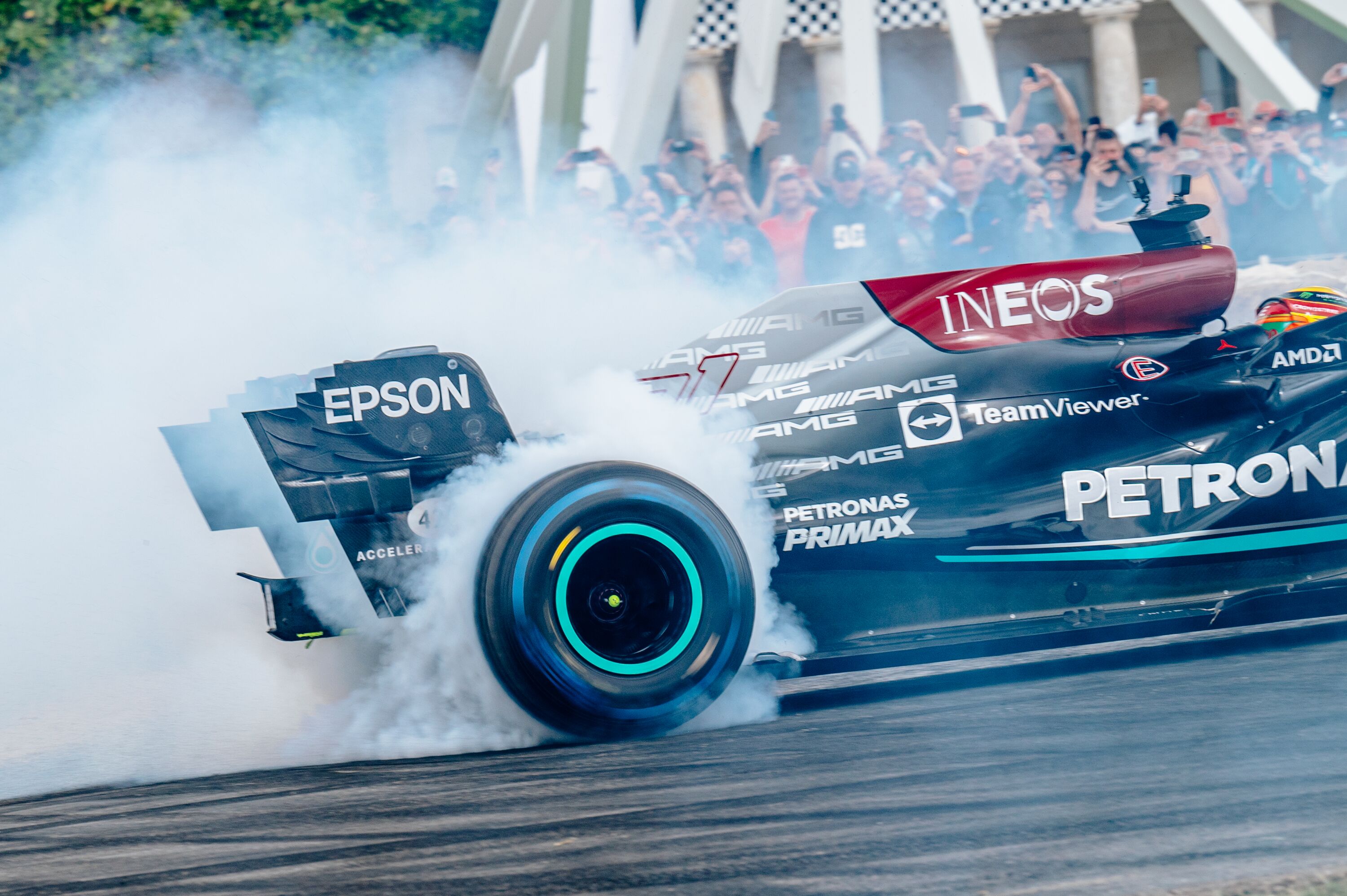For how long will the Mercedes dream team last?
It was a remarkably frank exchange of views that highlighted the honest and open relationship that exists between Lewis Hamilton and Toto Wolff. But for how much longer will it continue?

The conversation itself may have been slightly dated, shot as it was at the end of February, just weeks prior to the start of what should have been the new Formula 1 season before the coronavirus wrenched normality from our everyday lives. But there was nothing fake, stilted or disbelieving in the words of six-time champion Hamilton and his Mercedes motorsport boss of the past seven years during a head-to-head chat with Sky Sports F1 co-commentator Martin Brundle.
After all, there cannot be too many high-profile sportsmen around the world, such as Hamilton, that have entered the most important contract negotiations of their career – without an agent, it must be noted – and concluded talks in the space of 10 hours, over a pizza, and in their own apartment.
That is exactly what Hamilton and Wolff did two years ago, in the former's pad in Monaco, prior to the British driver putting pen to paper on an eye-watering £40 million two-year extension to a contract that expires at the end of this year.
Given the hiatus over the past two months, you would hope Hamilton and Wolff have taken advantage of this period without the pressure of racing and at least commenced discussions over a further extension, even if they have been unable to do so face-to-face.
When they sat down to conduct the interview with Brundle, it was likely one of the last such meetings held between them prior to lockdown putting a freeze on such previously commonplace activities. But the pair made clear that even during those times when they are not in each other's vicinity, they engage in banter via text or WhatsApp, again underlining the comfort zone in which their relationship currently exists.
Wolff revealed, for instance, that Hamilton had jokingly messaged him after it had come to light that from 2012 through to the present day, the advertising value of Mercedes' presence in F1 had risen from $60-$70million to $4.5 billion. As a starting platform to negotiate a new deal, Hamilton quickly jumped on such a fact. “Don't worry he sent me that number a few weeks ago,” laughed Wolff.
Of course, it is not champagne and roses all the time. There is not some bromance taking place as there has been plenty of work put into making their partnership function as it does today.
“It's definitely not just come easy,” confirmed Hamilton. “It's been over time we've learned to trust one another, which is obviously such an important value to have, that respect, and we just continue to build.”
Pertinently, Hamilton added: “We’ve never had a bust-up or anything like that. We have disagreements but we just talk it out.
“The thing is, I think we’ve just always been really transparent with each other whether you like it or not, and I think that’s been why it’s as healthy as it is.”

They are the reasons why Hamilton is almost certain to stay, and I say 'almost' because there was one interesting caveat during the entire 30-minute discussion that would easily have been overlooked on first listen.
As background, Hamilton has made clear this year his love for Mercedes. It is a brand he has been associated with for over 20 years.
In an Instagram post last month that Hamilton later deleted, in unusually responding to an article that had clearly raised his ire, the 35-year-old categorically stated he was with his “dream team”, adding that “there's not a thing in my way as I’m not trying to move. I’m with the people who have cared from day one”.
In the interview with Wolff, when asked by Brundle about the prospect of a move to Ferrari, Hamilton said it would be “a short-term thing”, and that being with Mercedes, “a part of a legacy, and a life-long partner”, was “super appealing”.
If ever there was a driver nailing his colours to the mast, then Hamilton was doing so with brute force.

But there is a small chance the situation could be taken out of his hands. Rightly, Wolff acknowledged the value Hamilton “brings to the team as a driver and as a brand”, and that as a sportsperson he “has a shelf life”, and there will be a career beyond F1 that will require him “putting money aside for ventures in the future”.
But there was a poignant flipside. Wolff then added: “Lewis knows the limitations of the team and where we need to put the money, that [parent company] Daimler is not in an easy situation today, and that's why almost with any kind of discussion we know where it's going to end. Money was never a problem.”
Bear in mind this conversation took place two months ago before businesses the world over were forced to tighten their belts, and for Wolff to comment back then that “Daimler is not in an easy situation”, one wonders as to its financial health at present.
Most recently, we have seen Audi withdraw from DTM, instead opting to focus its attention on Formula E. In 2009, when the global credit crisis ripped the heart out of the worldwide economy, Toyota and BMW ended their involvements in F1.
The damage done to the economy on this occasion is understood to be far more severe, and Daimler will be mindful of its primary focus as a road car manufacturer, compared to its secondary pursuit in motorsports, in these tough times. Like Audi it, too, has a foothold in Formula E, with electric the future of the car industry as petrol engines slowly become phased out over time.
This is all long-term, of course, but the pressing short-term needs will weigh on its future plans, and there may be question marks being raised within the boardroom as to the necessity of continuing in such a financially-draining series as F1.
Wolff has a vested interest, of course, as he has a 30 per cent stake in Mercedes' motorsport's operation, and like any businessman, he may also be counting the cost of the current pandemic.
Hamilton and Wolff have enjoyed a remarkably successful partnership together, and the smart money suggests it will continue, but in this wholly uncertain situation, it has raised a seed of doubt.
Images courtesy of Motorsport Images.
Formula 1
F1 2020
F1 2019
Mercedes
Lewis Hamilton
Toto Wolff
































































